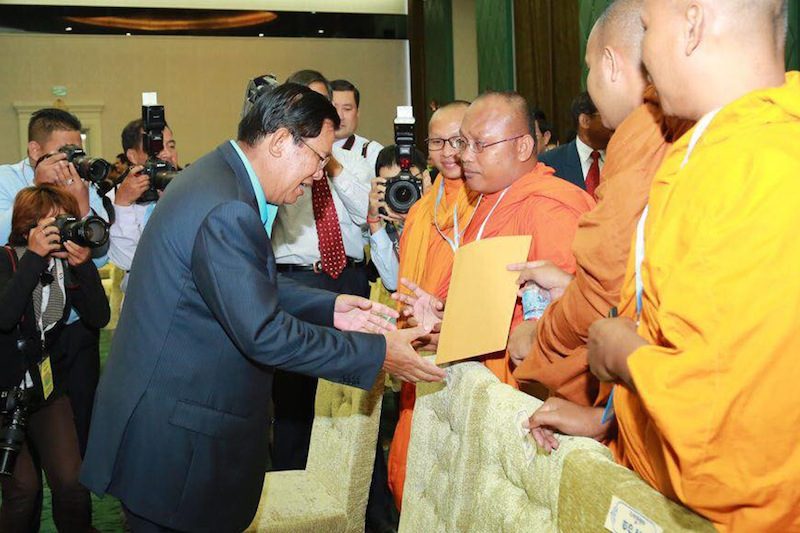Prime Minister Hun Sen on Monday presided over the first of what he promised would be an annual public forum to discuss the plight of the country’s natural resources, though some participants left doubting the events would do much good.
The Forum on the Protection and Conservation of Natural Resources, held at the prime minister’s office building, was a rare chance for activists to put their concerns and requests straight to the premier. The government sought to convince them that it’s getting serious about preserving the country’s lakes, rivers and forests, which have been plundered for decades, often with the help of officials.

“I announce right now that we have to join together for the same goal,” Mr. Hun Sen told the audience of about 500, mostly government officials and civil servants.
For much of the five hours, however, he blamed many of the country’s troubles on others, never himself, though he has said in the past that he will personally ensure the country’s environmental progress.
He blamed the lack of on-the-ground enforcement of environmental law on bickering agencies. He blamed the slow pace of land reform on the collectivization policies of Pol Pot, who was thrown out of power more than three decades ago. And he blamed the myriad land disputes triggered by government-approved agribusiness plantations on the failure of local officials to practice his vaunted “tiger skin” policy, whereby pre-existing communities inside the plantations are allowed to keep their land.
“The recommendation I gave to fully implement the tiger skin was not followed, so the land disputes happened and forests were destroyed,” he said.
Central government bodies directly under his control, however, including the Council of Ministers, have approved hundreds of such plantations—some for fellow CPP lawmakers—without carrying out the social and environmental impact assessments required by law. Their clear-cutting of forests, often outside of their boundaries, has given Cambodia one of the highest deforestation rates in the world.
There was also relatively little discussion on Monday of the government corruption widely believed to be greasing the country’s booming illegal logging trade.
“I have seen officials on the road not arresting vehicles transporting wood. They just take the money and let them go,” said Thy Sovantha, a popular youth activist.
“What you have raised about officials is true,” Mr. Hun Sen replied, and left the matter at that.
Besides the annual forum, the prime minister said the relevant ministries will convene with NGOs and community groups to carry on the discussion every three months.
Hoeun Sopheap, a member of the Prey Lang Community Network, which fights for the protection of the largest lowland evergreen forest left in Southeast Asia, left the meeting ambivalent.
He said the rare audience with Mr. Hun Sen gave him some hope the government was serious about reform. On the other hand, he added, “I don’t have much hope because of the political context of our country. When the elections are near they want the votes of the villagers.”




